This morning, a fellow trader asked me "where will oil bottom?" My answer is a 2020 answer. "Well, zero didn't hold before!" Looking at oil this year from different perspectives, some with 20/20 hindsight, a current 2020 reality check and 2020 carbon speculation, investors have pushed stocks with no revenue skyward (SPACs), and crushed others with revenue that fuels the world.
Many people are promoting the death of fossil fuels as a welcome event. At $50/barrel for crude, it is around $18 trillion a year in revenue globally. That's a big nugget to stall. However, the crude chart definitely looks like a downtrend, with lower highs and lower lows.
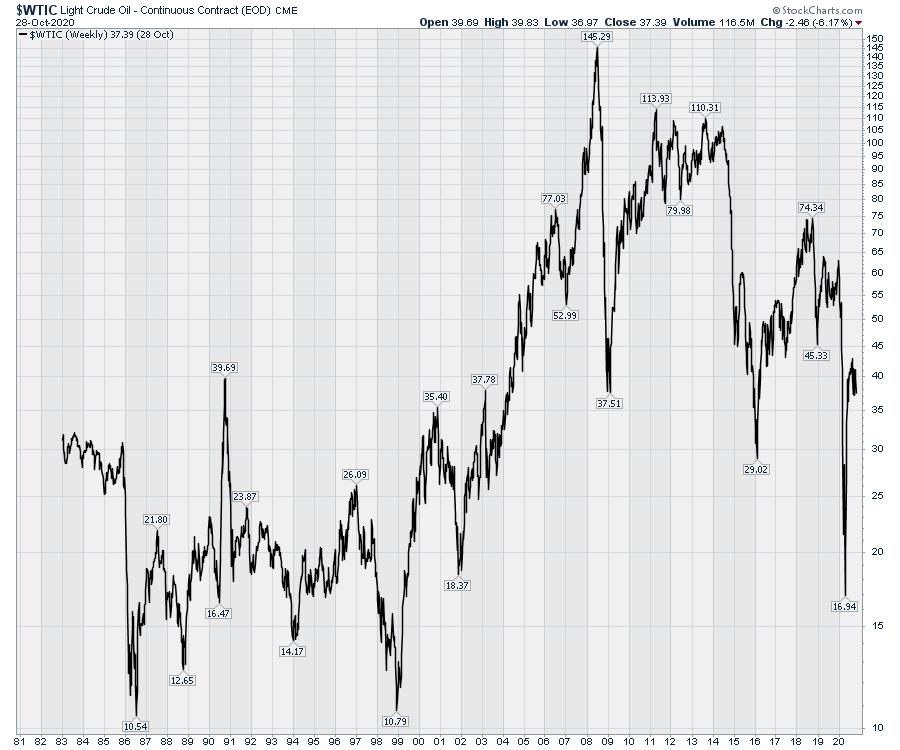
While tobacco is a choice to purchase, here is the stock performance of one of the big tobacco companies. It makes it interesting to compare what investors are willing to pay up for.
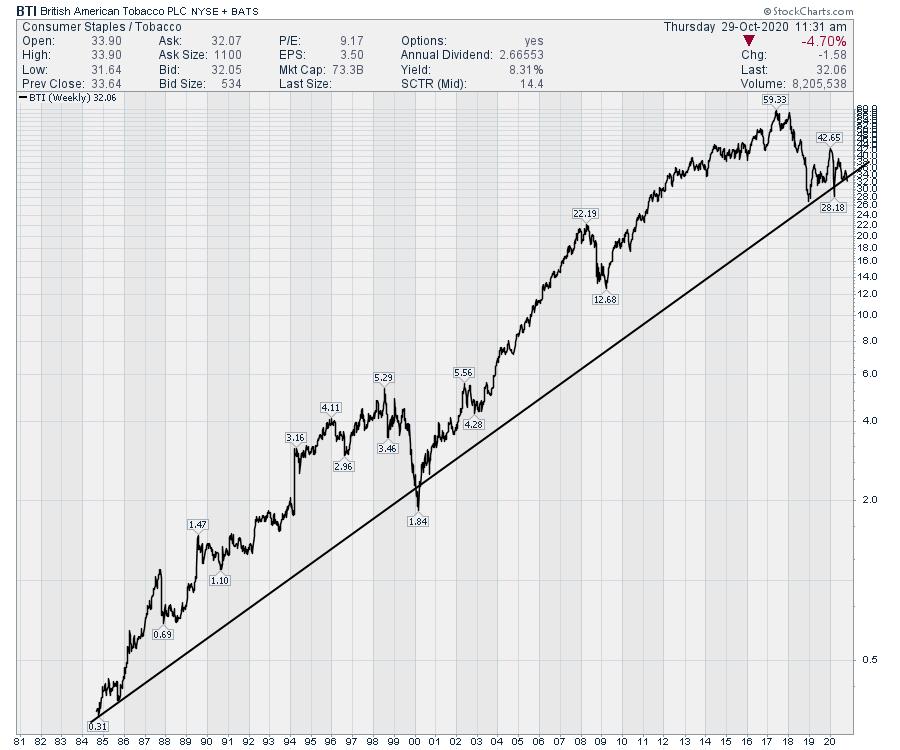
At a coffee cup discussion, the oil companies are easy to hate. As the light bulb goes on and the oil lamp goes out, it becomes more important to understand the systems that will fuel the world. We don't want to care about that currently, as the carbon problem is the number one problem.
Oil takes a significant effort to find, produce, refine and market, but it gets done at $2 a gallon. Then there is coffee. There are 16 8oz cups in a gallon. A cup of coffee is $2. Takes about 18 minutes to roast beans. So coffee - flavored water - is 16 times more expensive ($32 vs. $2) than gasoline. We compare the price of gas and talk about it at a party, while we line up for 30 minutes in a COVID world for something expensive at Starbucks (SBUX) and cheap at McDonalds (MCD). When gas moves up, we notice the rising additional costs of filling a tank (roughly $2 more) which provides heat, air conditioning, mobility and independence; then order a macchiato at $5, which is $3 dollars more than the regular coffee, while we complain about the fuel price increases. I guess they both provide comfort. It is a funny world, isn't it!
Food for thought on the charts below. I looked at some long-term trend lines and the picture isn't pretty.
Some are cheering XOM being kicked out of the Dow Jones Industrial Average. 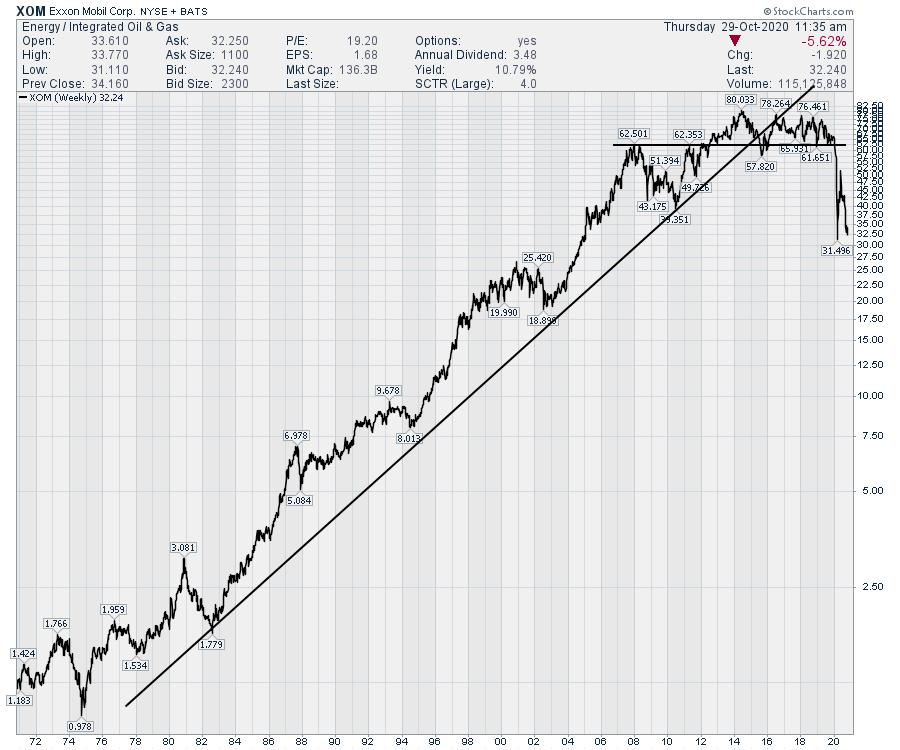
If we look at BP, #bpnetzero2050, we don't believe them. We are not treating the stock like a SPAC with no revenues in the alternative world.
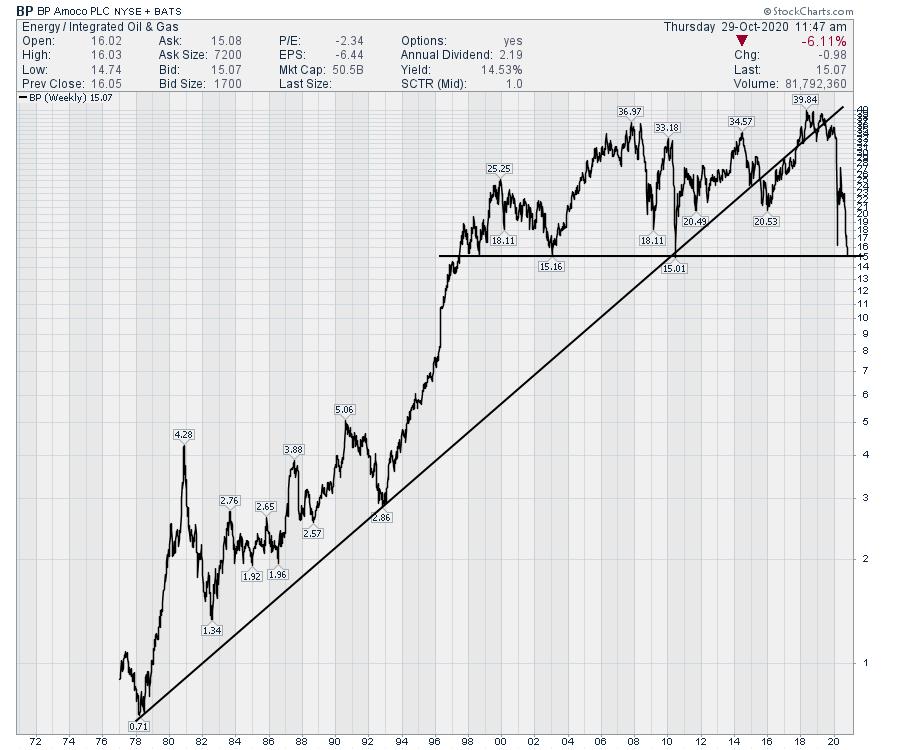
Here is Total (TOT):
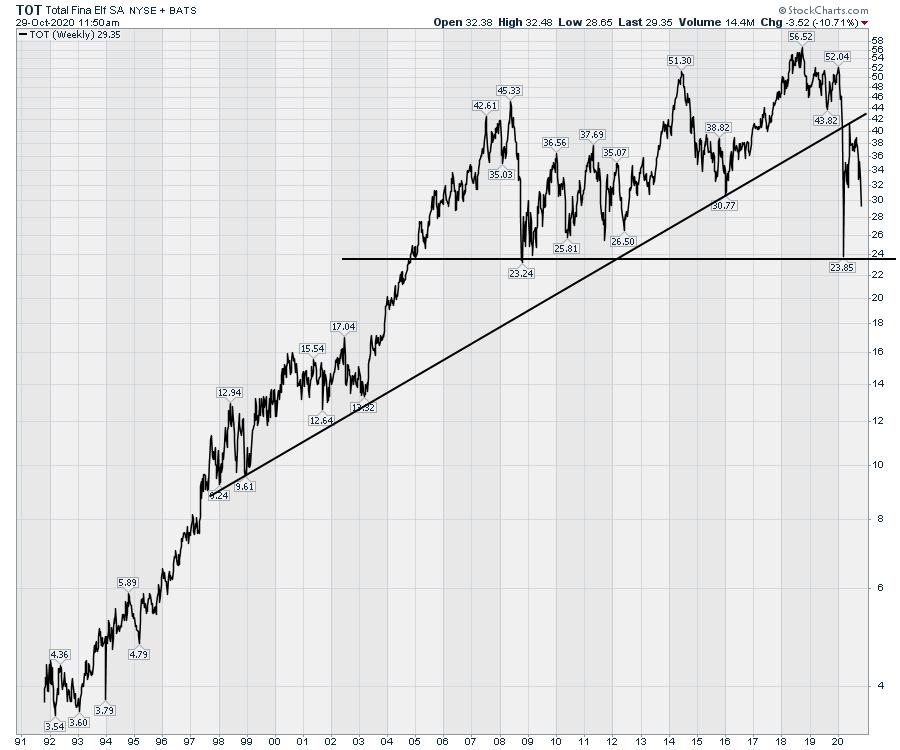
ConocoPhillips (COP) has been repositioning in the downturn, with some acquisitions. Is that a massive double top?
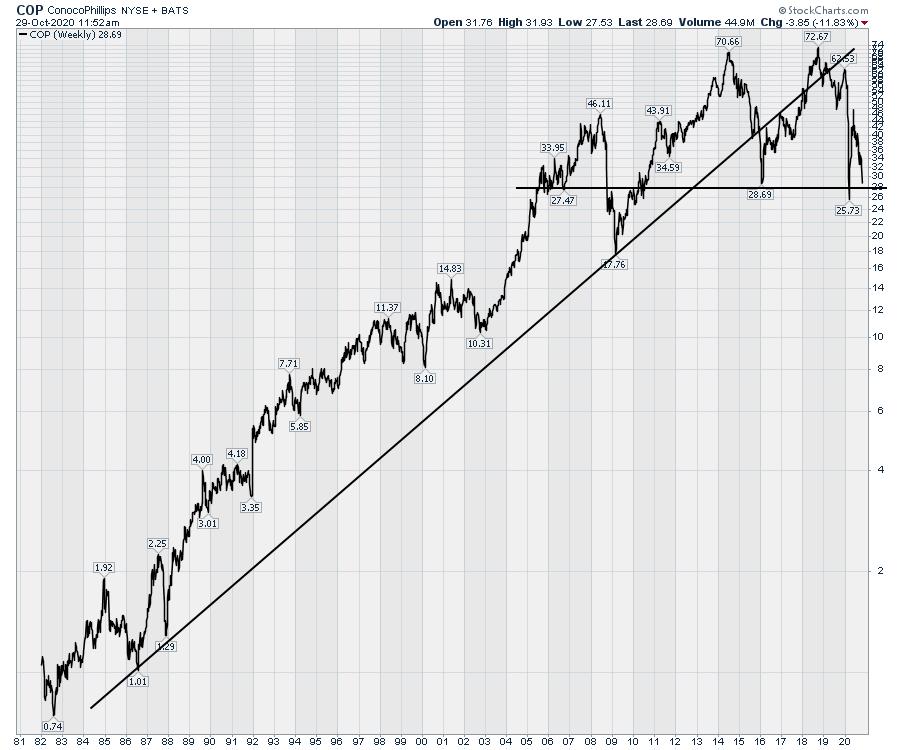
Chevron (CVX) looks similar. With a crusty level of resistance at $120 firmly in place, we keep testing the downside.
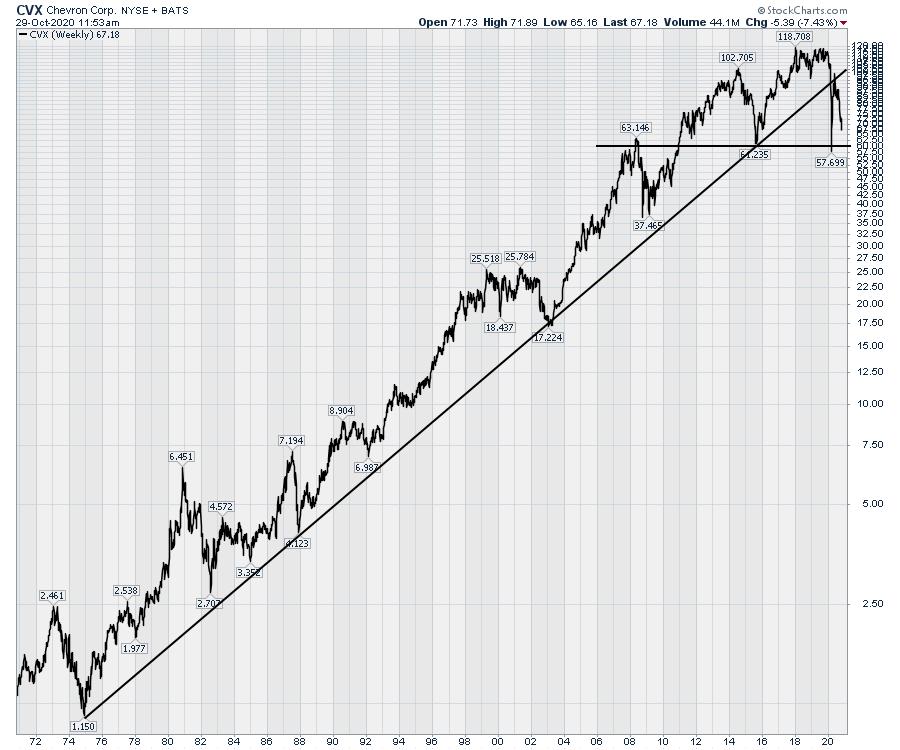
Here's CNQ, Canada's largest oil company:
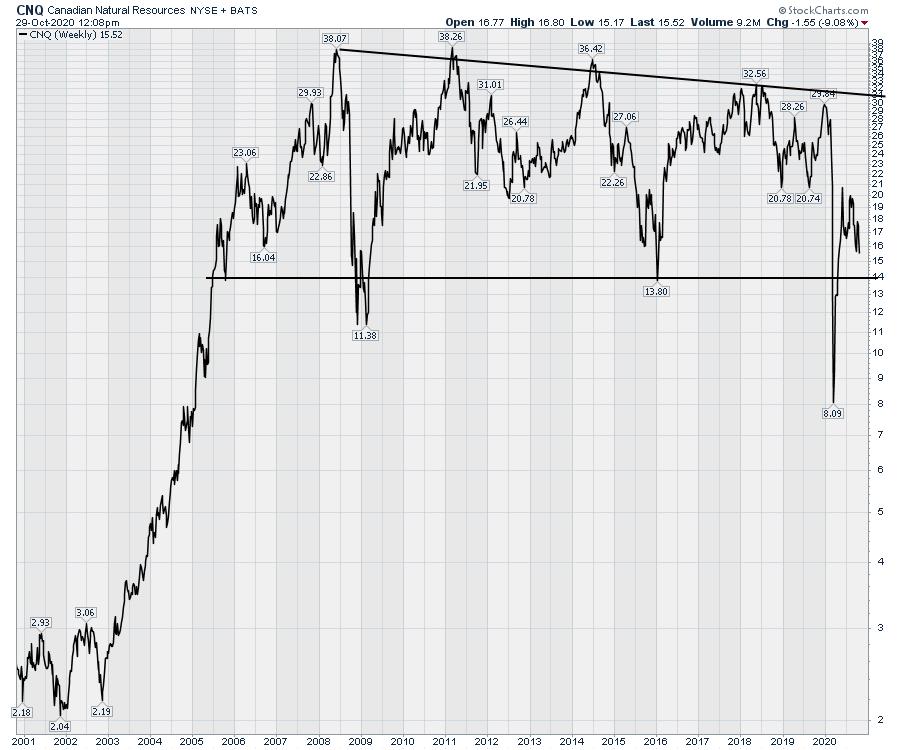
Suncor (SU)'s chart looks badly damaged. It's one of the worst.
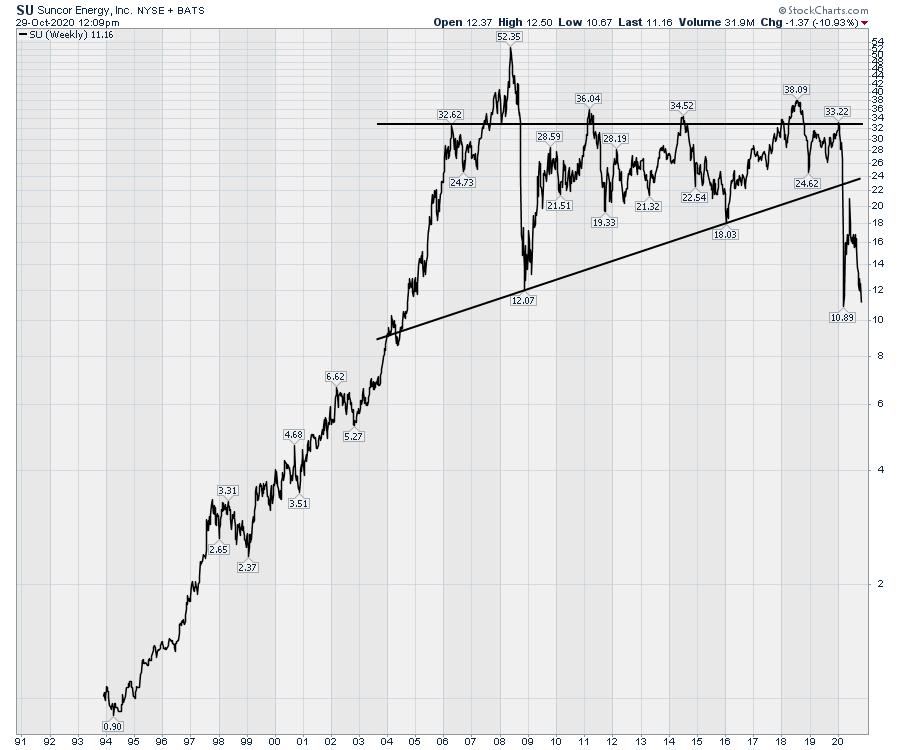
The most successful countries in the world have had access to cheap, reliable energy. China and India continue to ramp up fossil fuel energy usage, while Russia and America have long been global leaders due in part to access to stable energy. Using an example during World War II, disrupting the supply lines across the Atlantic and Pacific was a meaningful strategy that played huge parts in the outcomes of the war. But investors this time around are quickly dismissing this access to liquid, portable energy.
The long-term oil charts look damaged. If you want a winner, I guess you can invest in a cigarette. Just don't smoke it near gasoline.
Good trading,
Greg Schnell, CMT, MFTA
Senior Technical Analyst, StockCharts.com
Author, Stock Charts For Dummies
Want to stay on top of the market's latest intermarket signals?
– Follow @SchnellInvestor on Twitter
– Connect with Greg on LinkedIn
– Subscribe to The Canadian Technician
– Email at info@gregschnell.com
